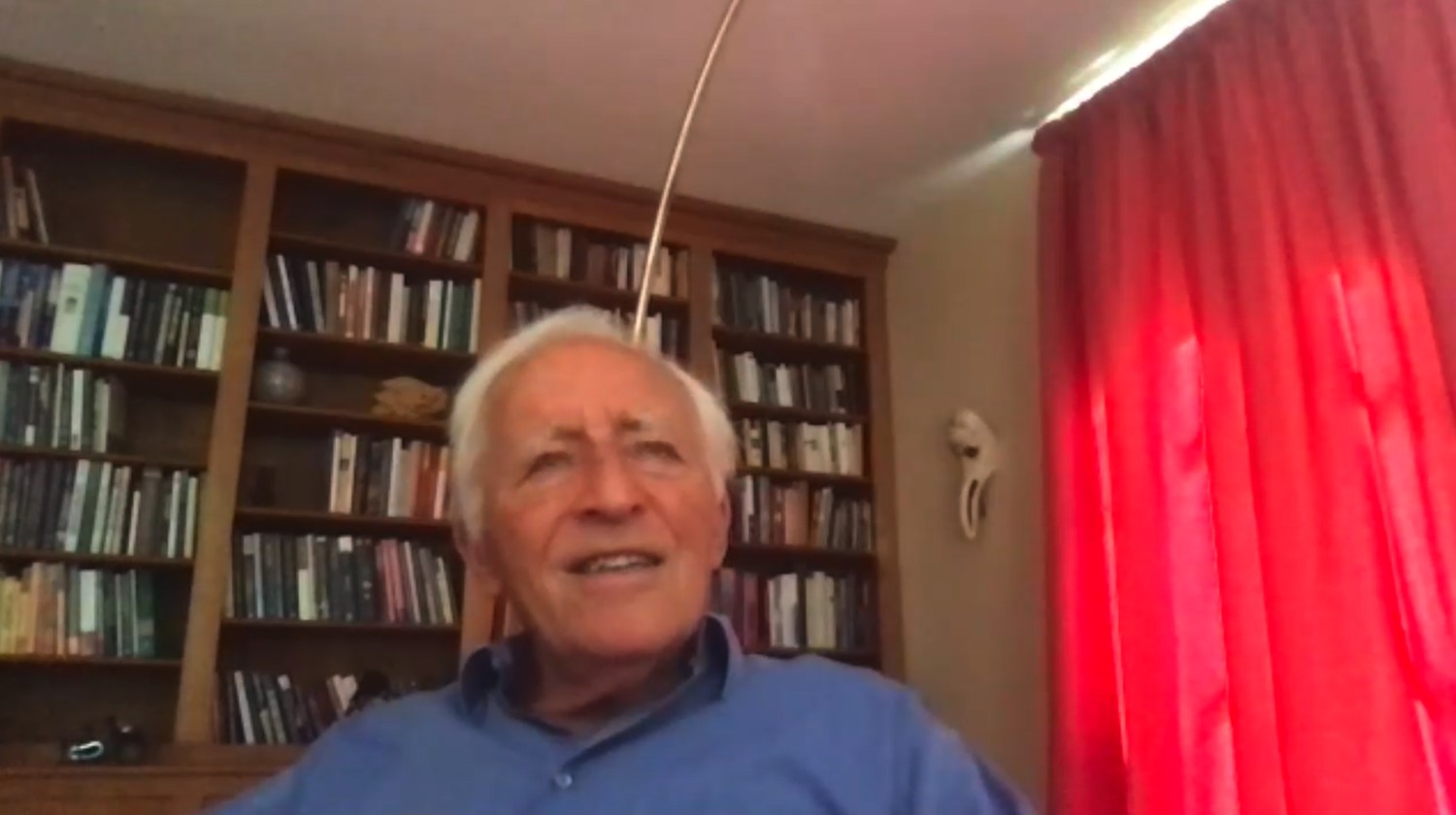Shoshana Zuboff
American. Author (“The Age of Surveillance Capitalism”) and Professor Emeritus, Harvard Business School
1. Why does economics matter?
Well, there’s economics and there’s economics. The essential purpose of economics always matters because groups of people will always be facing that terrifying spectrum between scarcity and surplus, between stagnation and growth. And therefore, we need the kind of thinking that we have called economics in order to help us find a way to flourish in that spectrum.
Economics as a discipline, of course yes, it matters. Unfortunately, sometimes it matters in a way that can hold us back, and sometimes it matters in a way that can push us forward. So as you’ll see as we move through our discussion, most of my answers begin with the phrase “it depends.” It depends on these impinging systems that determine whether or not our economy is moving in a direction that is aligned with humanity or not.
2. What are the differences between economic science (academic economics) and economic engineering (policymaking)?
When we talk about economics as a discipline, we’re already dealing with the problem of abstraction. And I will not be the first one to say, and I’m sure I won’t be the last one to say, in this marvelous series of interviews that you’ve been doing, that economics has become extremely abstracted from the lived realities of economic life. So we have academic economics, which has really become highly abstracted from the realities of embedded life, embodied life, embodied behavior. And then when we talk about translating that economics into policy. The opportunity there is that policy finds a way to collide with reality, and when it collides with reality it can be tuned in a way that is helpful to everybody.
Sometimes policy is imposed with allegiance to the ideologies of the abstraction rather than to the observed experience. And that’s, of course, where we get into trouble. One way of reading economic history, especially in the modern era, is the way in which economics, translated into policy imposed on living communities, has intensified crises. And then it’s the societal response to that intensification that really determines where we come out in that whole dialectic. I don’t know if I’ve exactly answered your question, but that’s how I see the relationships among those strands or those disciplinary tributaries.
3. What role does economics play in society? Does it serve the common good?
Well, okay, here’s where the rubber meets the road with my foretold phrase “it depends.” Nothing could be more contingent than this question. Look, the modern era is distinguished by the phenomenon of economic growth, and economic growth is what we have to thank for science and education, for advances in health, in the human lifespan. Just about every feature of modern civilization that we cherish is made possible because of economic growth, because of the way we have found to create surplus.
But does this serve the common good? Well, now I’m afraid I have to skip ahead a little bit in your questions, because whether or not our insights into the kinds of mechanisms that produce growth and therefore give us the opportunity to serve the common good, whether or not that opportunity is fulfilled really depends upon the ideologies into which these economic insights and discoveries and inventions are embedded. And here, of course, we come up against another key part of your interest, which is capitalism and the relationship between economics and capitalism.
So you’ve brilliantly prefigured this as a problem of ecological reasoning, and my more simplistic approach, which I call Russian dolls. Each one of these layers is nested in a larger layer, which is nested in a larger layer. And the way I operate is that I think of economics as being nested in financial ideologies. A premier financial ideology is capitalism. But capitalism itself is not something that can be defined a priori. Its definition depends upon what it is nested in, because capitalism must be nested in society. And society is an entity that’s moving through history. So there are times when capitalism’s nesting in society, when we find that societal principles, for example, the principles of a democratic society then envelop capitalism and hold it in this home, in this nest where democratic principles prevail, they balance the inclination of a radical free market vision that is endogenous to capitalism. They balance those inclinations with these exogenous principles that become nested and become ultimately intermeshed with the practice of capitalism and therefore filter down into the way in which we choose among potential economic inventions, innovations, mechanisms, and so forth.
So what we have really is a situation where we ask the fundamental questions about economic growth: is it sustainable growth? Is it inclusive growth? Is it a form of growth that advances authoritarian principles? Is it a form of growth that advances democratic principles? We cannot answer those kinds of questions about “economics” unless we understand it in this whole perspective of the nests within the nests. And this is where our disciplinary thinking really has hobbled us, I believe, in the kind of holistic grasp of economics as a lived experience, economics as the means through which we produce a flourishing civilization.
4. Economics provides answers to problems related to markets, efficiency, profits, consumption and economic growth. Does economics do a good job in addressing the other issues people care about: climate change and the wider environment, the role of technology in society, issues of race and class, pandemics, etc.?
My answer to this question follows very much from the comments I just made. Economics alone, whether we’re talking about economics as an academic discipline or economics as policy, economics alone cannot accomplish any of these things.
It’s only economics and the way we think about the role of the market in relationship to societal principles, values and aspirations, in relation to the rule of law, in relation to democratic institutions, in relationship to charters of rights, it’s only in the context of those relationships that we can even begin to answer these questions. And so you raised in your question, for example, on the one hand, climate change, on the other hand, technology in society. And these are two good examples of what I mean.
In both cases, our civilization right now, our global civilization right now, is suffering under the tragic consequences of the failure of these nesting principles, of the disconnection between economics, capitalism and society. So in the case of climate, that disconnection has produced a tragedy of the commons, where our Earthly environment is being destroyed. Life on Earth as we know it is being destroyed. And this has been allowed to occur on the strength of an ideology of market freedom, of radical market freedom, an ideology that twists itself around in order to declare the legitimacy of these kinds of harms being treated as off-balance-sheet externalities, the unfortunate but necessary collateral damage of profit maximization. And the idea that we would have an economics that serves our societies in which the destruction of the Earth is simply an unfortunate byproduct, is a bizarre and irrational and deeply inhuman idea. So, obviously these fatal divisions between economics, ideology, and society have cost us everything. And that’s why I think there are more and more of us who are of the mind that these divisions cannot stand. They will not take us into the future if we all expect to live, and live on this planet.
But I can make a similar case for the issues of technology in society. As you know, I’ve written about what I call surveillance capitalism, and this is a form of data capitalism which has become dominant in the 21st century. And rather than producing a tragedy of the commons, surveillance capitalism has produced a tragedy of the uncommons. And by that I mean spheres of life that we have treated as public, and that every single day people log into Google or log onto Facebook or any of the other platforms, or any of the other digitally-connected information and communication spaces that we have all become dependent upon, thinking that they’re entering some kind of public space, some kind of free space where they can speak and their speech will be translated as they intended. But that’s not what’s occurring because our information and communication spaces in the digital realm have become owned and operated by private surveillance capital under the aegis of a market-privileging ideology.
We refer to it in shorthand as neoliberalism. This has dominated the last five decades, during the period of time, of course, when the Internet and the World Wide Web were invented and eventually engulfed all of our information and communication activities.
So this has become a tragedy of the uncommons, where we can no longer participate in social life, in economic life, in political life, without being marched through the institutional terrain of surveillance economics and its very pernicious and antidemocratic operations. So here we have tragedies of the shared space, tragedies of the now-private space, and both the physical manifestation of our shared life together and the digital manifestation of our shared life together are under mortal threat. And these have undermined life itself and certainly undermined the prospects of democracy in the 21st century. So these are world historic failures that I place on this fatal disconnect between economic logics and their mechanisms, the ideologies that hold them, and the societies that we have always counted upon to hold those ideologies, to temper their radical instincts, their destructive instincts, and to tether them to the principles and aspirations of a democratic society.
So as depressing as this is and sounds, I do want to say that I think it very clearly lays out our agenda for the remainder of this century. And I take sustenance from the fact that if we look at the 20th century and the rise of an unbridled violent and destructive industrial capitalism, in America, at least, it really wasn’t until the fourth decade of the 20th century that we really got serious about imposing democratic values on industrial capitalism and tethering its destructive propensities to the interests of democracy and democratic institutions and a democratic people. Well, right now we’re embarking on the third decade of the 21st century. We all know that time speeds up in the digital world, and I am very optimistic from all of the things that I observed that there is a gathering force among the public and among our global cadre of lawmakers to finally confront these tragedies and actually figure out how to get to the other side of them. And so I think there is great cause for optimism, even as we have pushed ourselves into this very intense set of contradictions. Just the sheer force of having to resolve these contradictions I think perhaps puts us in a new part of the cycle where we begin to see cause for optimism.
5. As we live in an age of economics and economists – in which economic developments feature prominently in our lives and economists have major influence over a wide range of policy and people – should economists be held accountable for their advice?
Well, absolutely. This, to me, was the easiest of all of your questions. I just wrote down “yes.” Do we hold our doctors accountable? Yes. If we’re formulating ideas with a view to their application in society, then yes, we have to be held accountable. If we’re in business and we’re manufacturing products that have plastics and chemicals that are going to be buried in the soil and the sea for millennia, are the producers to be held accountable? Of course they are. This goes back to the proposition I mentioned earlier, the idea that somehow an ideology that extols the market and declares the rights of market actors to radical freedom, this therefore absolves those market actors of responsibility for the consequences of their actions. And that just doesn’t make any sense, and the tragedies of the commons and of the uncommons are illustrations of the senselessness of that kind of thinking.
So if producers were responsible for their products and economists were responsible for their ideas, that becomes an endogenous institutional mechanism, a mechanism of self-reproduction that is inherently a safeguard that is inherently imposing guardrails on the practice of our disciplines. It’s like urban planners not being held accountable for dividing cities and creating ghettoized communities and areas of food deserts and all the rest of the ailments that have been produced by supercilious urban planners imposing their visions on large communities. So, yes, professionals are trusted when they are held accountable and take responsibility, and that should just be the fundamentals of any professional code.
6. Does economics explain Capitalism? How would you define Capitalism?
I played around with this question a little bit in my own mind. As you’ve heard me say, I define capitalism largely as an ideology. Capitalism provides answers for key questions about economic growth, such as, is it sustainable growth, is it inclusive growth? Capitalism is a kind of supra-ideological structure. It introduces us to market exchange, it introduces us to profit and profit maximization, it introduces us to principles of commodification.
But underneath that are economic principles and mechanisms that really have validity in the context of not only capitalism, but of other ideologies as well. For example, the nature of the relationship between supply and demand, the consequences of the division of labor. These are economic ideas, classical economic ideas that still hold importance in every era, but you can see that they’re taken up and they produce very different realities in different eras. If, for example, they’re applied in a social democratic capitalist context, in a context of capitalism in which there is a strong democratic control versus a capitalism which is free to evolve within a societal ideology of self regulation and of radical free markets.
So, I don’t think that economics explains capitalism. I think it’s much more likely that capitalism determines what economic concepts are favored, how they are understood, and ultimately how they are applied. I’ll just leave it there, but that’s the way I would phrase that relationship.
7. No human system to date has so far been able to endure indefinitely - not ancient Egypt or Rome, not Feudal China or Europe, not the USSR. What about global Capitalism: can it survive in its current form?
No, I don’t believe it can. And I can tell you why, building on what we’ve already been discussing. Let’s go back to my simple but happy Russian dolls. So really, what I’ve said to you so far about that suggests a kind of nation state perspective, a societal perspective. So, for example, we can see very clear differences between how a variety of European societies and Asian societies have imposed social principles, values, charters of rights and so forth on capitalism within those societies, how that has translated into the economics of those societies.
In America and in the UK as the two most outstanding examples, these are the two nations that have gone furthest in the extreme direction of radical free market social principles to complement a radical free market version of capitalism. And, therefore, our economics has been applied to emulate those values with things at the operational level that people call profit maximization, shareholder value maximization, all of those kinds of operational applications of the larger set of market-privileging economic mechanisms.
So now we talk about global capitalism. Well, the question is, what is the institutional order that has the authority and the power to be a countervailing force for global capitalism? Right now, we do not have a global institutional order capable of exercising that imposition of values and principles of rights and laws and institutions on global capitalism in order to tether it to global economic growth in a way that produces equality and inclusive prosperity and sustainable growth, and diminishes surveillance capitalism in favor of forms of data capitalism that actually begin to reunite supply and demand and contribute to what people in societies are actually begging for and yearning for, which is not dystopia.
Until such time as we have that global social order which can bring global capitalism into its home and create those nesting operations that hold global capitalism accountable to democratic values - as I’ve suggested, sustainability, equality, inclusiveness, and so forth - global capitalism is likely to continue to careen on the path that it has been on, which is having complete freedom to distribute economic growth according to its most powerful players. And this is where we’ve seen the extreme growth in income inequality, redistributions of the capital share and the labor share.
Admittedly, this has been helpful for many people on Earth, but it’s been helpful for many people on Earth at the expense of other people on Earth in a zero sum game among the people on Earth who work for a living in our factories and in our offices and so forth, and where the capital share has grown exponentially. And most of the pain that we’re suffering today in our democracies - the anger, the polarization, the divisiveness, the hate, the violence, the distrust, the breakdown of our institutions - ultimately rolls back to these sources. For the sake of democracy, for the sake of humanity, global capitalism cannot continue to careen into the future untethered by the values that most people hold and most people want to see applied to our global institutions. We have work to do, whether it’s on the technological frontier, surveillance capitalism, on the climate frontier, and in the more general rubric of global capitalism, we have work to do in building our transnational institutions in a way that gives them real teeth and real power and real legitimate authority. And that, again, I believe, must be on the agenda for this 21st century if we are going to redirect our path away from dystopia and toward the kind of flourishing future that all humans really yearn for.
8. Is Capitalism, or whatever we should call the current system, the best one to serve the needs of humanity, or can we imagine another one?
Well, the way that I have summarized this over the years is to say that capitalism should not be eaten raw. And by that, I mean that capitalism is not capitalism is not capitalism. At the risk of sounding a bit like a broken record, I think that with the quote that you admire, or at least has made an impression upon you, what that quote suggests is that there is something in capitalism that does deeply appeal to the human spirit. And that’s why I go back to this principle of economic growth: without economic growth, we are consigned to scarcity, much more survival of the fittest even than these societies that we’ve been living in for the last five decades. Nobody wants to go back to scarcity. Nobody wants to go back to a world in which there isn’t enough surplus to educate everyone, to make everybody healthy, to increase the lifespan, to have the arts and the humanities and all of the things that we need for a flourishing civilization, the advancement of civilization.
To the extent that we link capitalism with economic growth, I think right there, there is a spark, there is a flame that has tremendous validity for all human beings. No one wants to go back to the Middle Ages or ancient kingdoms where the only way that people survived was on the basis of most people being excluded from the goods of those societies, through slavery, through gender, through other aspects of the blood and kin into which they were born.
So, how do we preserve that flame? And this is where I would say that capitalism is not just always deadly and dangerous, that capitalism, in fact, its resilience comes from its utter plasticity, that capitalism has changed enormously over the ages. And mercantile capitalism was not industrial capitalism, and industrial capitalism is not surveillance capitalism.
And even when we look at industrial capitalism within itself, we began the industrial age, the late 19th and moving into the 20th century, with an industrial capitalism as a really violent, destructive operation, destructive of nature, but also destructive of human bodies and destructive of human life. But it was as industrial capitalism became tethered to democratic institutions and we legitimated workers rights and consumer rights and the laws to oversee and enforce those rights, and the institution to oversee and enforce those laws, then industrial capitalism really became something very different. So much so that when the Soviet delegations came during the Roosevelt years to tour America, and during the 40s and 50s to tour America, they were astonished at what they saw. They were astonished at the standard of living that workers enjoyed and their access to education and health care and on and on and on.
So, we had a period in the 20th century where capitalism - I still love Polanyi, I still love Karl Polanyi and “The Great Transformation”, and I think many people have restated Polanyi in far more complex terms, but I think Polanyi stated a fundamental truth: the double movement. The market, when left to its own devices, will destroy society. The market must be tethered to, in this conversation, democratic societies if it is to serve humanity. And we’ve seen the proof of that in the 20th century. Had it not been for the accomplishments of rights and laws and institutions during the period of the New Deal in the United States, we would have had a 20th century of slavery and serfdom. But that’s not the 20th century we had, although we’re skating perilously close to it again now because of the ways in which the accomplishments of the mid 20th century have been systematically unraveled by the mechanisms and policies of neoliberalism for the last five decades.
So, the bottom line here is that capitalism survives because it adapts. And it is up to us, especially the citizens of democratic societies, to create the structures to which capitalism must adapt. And it is with the people to insist that capitalism must adapt to the rights and laws and institutions that we insist upon. It is up to us to make those demands. It is up to us to impose those demands on our lawmakers, and through them on our market actors and our business community and our economists and so forth. Ultimately, this is our problem and the solutions lie with us, with citizens and with lawmakers.






